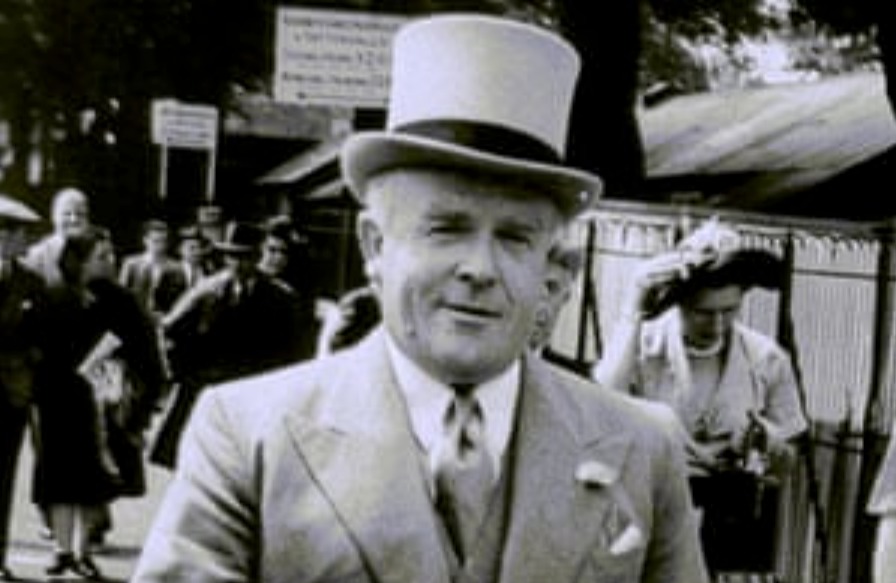Old Gold Racing
September 16, 2021Ronnie Cornwall
Ronnie Cornwell, owner of a string of racehorses, certainly looked the part.

Whether at the races or in the best hotels in Europe, at expensive restaurants or when greeting royalty, when standing for parliament or welcoming the Australian cricket team, his diminutive 5’7” frame fitted in perfectly.
But Ronnie was a conman. He lived on air. His wealth existed in the imagination of his creditors. He went to prison twice and was twice declared bankrupt. He was a charming chancer from humble beginnings, a philanderer with a huge personality, a romantic and a serial liar who was irresistible to men and women alike.
He was also the father of Simon Cornwell, the best-selling writer better known as John Le Carre, author of The Spy Who Came in From the Cold and Tinker Tailor Soldier Spy.
Father and son had a difficult relationship.
Ronnie’s colours were red with white chevrons, striped sleeves and a red and white quartered cap. Le Carre recalls a day at Chester Racecourse when he noticed a young jockey wearing the colours and reclining on the hay inside a horsebox. Lester Piggott, an apprentice at the time, was reading The Beano.
He and Sir Gordon Richards rode for Cornwell, the latter also offering advice on which horses to buy.
The inexperienced Le Carre was once dispatched to Newmarket with a suitcase and £300 with instructions to invest it all, each way, on a particular horse. By the time the public schoolboy had nervously negotiated the ring, the price had tumbled from 33/1 to 100/9. ‘Are you Ronnie’s lad?’ asked a friendly bookie. Le Carre admitted he was. ‘Take care of yourself, son’ was the advice.
Ronnie, aged 69, died of a heart attack on a Sunday evening in 1975 having spent the afternoon watching cricket. Le Carre attended the cremation, but not the memorial held the same afternoon. Charlotte Cornwell, his half-sister with whom he got on well, refused to speak to him for two years as a result.
The famous author had internalised feelings of rage towards Ronnie, and he became obsessed with expressing this in print. For years each biographical draft was a failure. His friends told him he was being so nasty towards his father that it was impossible for a reader not to start liking the man. Only with the publication of The Little Drummer Girl, in which the fictional Rick is recognisably based on Ronnie, did Le Carre successfully lay the ghost. Despite his feelings, he had created a character difficult not to understand and forgive.
Guilt, he reflected, is in the end something which has to be shared.
Tony Cornwell, Le Carre’s elder brother, who played first class cricket before becoming an advertising executive in Washington, said of his father Ronnie that he would simultaneously put one hand on your shoulder and the other in your pocket, and that both gestures would be equally sincere.
John Le Carre died in 2020 aged 89. He has been described as the most important English novelist of the second half of the twentieth century. He did admit once that if he hadn’t been a writer he might have become a criminal.
Ronnie himself, self-indulgent in drink and perhaps self-pitying, was fond of claiming that notwithstanding all his sins he would, in the end, be judged on how his boys turned out.

Written by:
Old Gold Racing
Share article:


